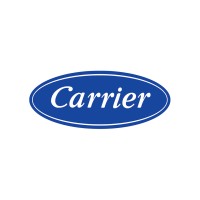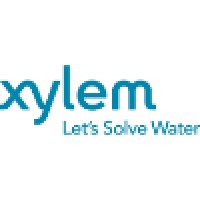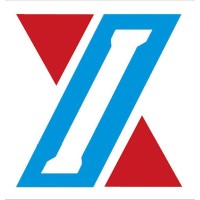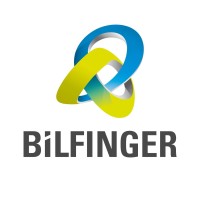Company Cyber Security Posture
NANA
NA Company Details
NA
NA
NA
NA
NA
NA
Scan still pending
NA
NA
Between 200 and 800
This score is AI-generated and less favored by cyber insurers, who prefer the TPRM score.
 NA Global Score
NA Global Score.png)

Company Scoring based on AI Models
| Model Name | Date | Description | Current Score Difference | Score |
|---|---|---|---|---|
| AVERAGE-Industry | 03-12-2025 | This score represents the average cybersecurity rating of companies already scanned within the same industry. It provides a benchmark to compare an individual company's security posture against its industry peers. | N/A | Between 200 and 800 |
Company Cyber Security News & History
| Entity | Type | Severity | Impact | Seen | Url ID | Details | View |
|---|
Company Subsidiaries

NA
Access Data Using Our API

Get company history
.png)
NA Cyber Security News
Continued Investments in Danfoss PLUS+1 Software Capabilities Aids Machine Design
None
SUNY Poly announces four new research centers, adding to 10 already created
The center, led by Assistant Professor of Cybersecurity Mahmoud Badr, will focus on strengthening the defenses of critical infrastructure ...
Danfoss software enables autonomous control
It allows users to add autonomous functionality to mobile machinery by integrating the blocks into their machine software applications, which ...
Drives-based platform will allow users to create custom applications
ABB says that the platform will allow supervisory PLC systems to be simplified, with advanced control logic implemented on the drive. Fieldbus ...
Eugene Frimpong: Securing the digital future of resource-constrained IoT via lightweight variants of modern cryptographic schemes
Eugene Frimpong is a Ghanaian who moved to Finland to pursue his doctoral studies. He is currently working as a Cybersecurity Engineer at Danfoss Editron.
Danfoss Drives: journey to net zero & energy efficiency
In manufacturing industries, Danfoss Drives brings the solutions in electrification to the site level, enabling tangible savings in ...
Sarah Dvorak: Manufacturing is for Anyone Who Wants to Solve Problems and Serve Customers
This blog is part of a series for Women's History Month to highlight women who are making an impact on the manufacturing industry.
Iowa State could become headquarters for $87 million national cybersecurity institute
Iowa manufacturers face a tough choice in the coming years: Fail to adapt to new technology and fall behind, or try to keep up and risk a ...
German semiconductor giant Semikron says hackers encrypted its network
Semikron, a German manufacturer that produces semiconductors for electric vehicles and industrial automation systems, has confirmed it has fallen victim to a ...

NA Similar Companies

Carrier HVAC
Founded by the inventor of modern air conditioning, Carrier is a world leader in high-technology heating, air-conditioning and refrigeration solutions. Carrier experts provide sustainable solutions, integrating energy-efficient products, building controls and energy services for residential, commerc

Schindler Group
The Schindler Group is a leading manufacturer and provider of related services for elevators, escalators, and moving walkways. Founded in 1874 in Switzerland, our company is at the forefront of industry innovation, working on pushing the boundaries of technological engineering, while having a stro

Xylem
Xylem is the global leader in advanced technologies, solutions and services that address the world’s biggest water challenges. We enable our customers to dramatically improve the way water and wastewater is used, managed, conserved, re-used and returned to nature. At every level, our global team is

Xinxing Ductile Iron Pipes Co., Ltd
Xinxing Ductile Iron Pipes is a mechanical or industrial engineering company based out of HANDAN. Xinxing Ductile Iron Pipes representatives, don’t miss out on opportunities to build relationships with members on LinkedIn. Claim your page, write a simple description, and share content to attract fol

FAD WHEELS Srl
GKN Wheels Carpenolo SPA is part of GKN Wheels and so of GKN Land Systems Division. GKN Land Systems is a diversified manufacturer and service supplier to the global agricultural, construction, mining, defence and automotive industries. Manufacturing a range of PTO shafts, wheels, clutches, ge

Bilfinger
Bilfinger is an international industrial services provider. The aim of the Group's activities is to increase the efficiency and sustainability of customers in the process industry and to establish itself as the number one partner in the market for this purpose. Bilfinger’s comprehensive portfolio co

Frequently Asked Questions
Explore insights on cybersecurity incidents, risk posture, and Rankiteo's assessments.
NA CyberSecurity History Information
How many cyber incidents has NA faced?
Total Incidents: According to Rankiteo, NA has faced 0 incidents in the past.
What types of cybersecurity incidents have occurred at NA?
Incident Types: The types of cybersecurity incidents that have occurred include .
Additional Questions
What Do We Measure?
















Every week, Rankiteo analyzes billions of signals to give organizations a sharper, faster view of emerging risks. With deeper, more actionable intelligence at their fingertips, security teams can outpace threat actors, respond instantly to Zero-Day attacks, and dramatically shrink their risk exposure window.
These are some of the factors we use to calculate the overall score:
Identify exposed access points, detect misconfigured SSL certificates, and uncover vulnerabilities across the network infrastructure.
Gain visibility into the software components used within an organization to detect vulnerabilities, manage risk, and ensure supply chain security.
Monitor and manage all IT assets and their configurations to ensure accurate, real-time visibility across the company's technology environment.
Leverage real-time insights on active threats, malware campaigns, and emerging vulnerabilities to proactively defend against evolving cyberattacks.




